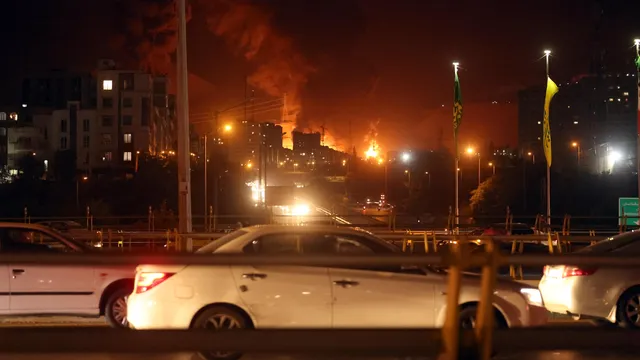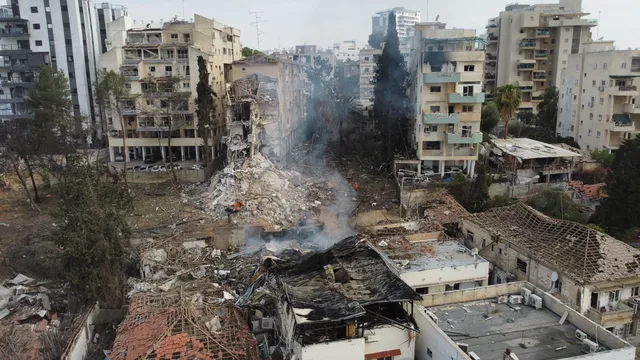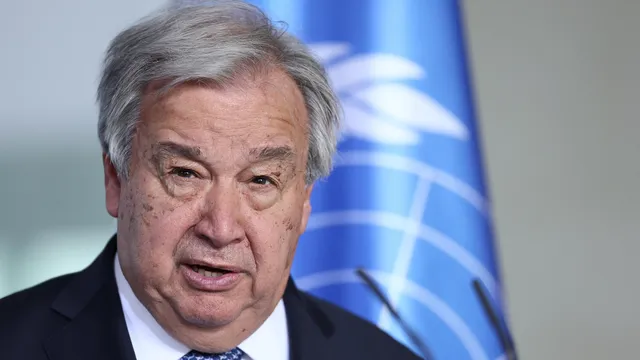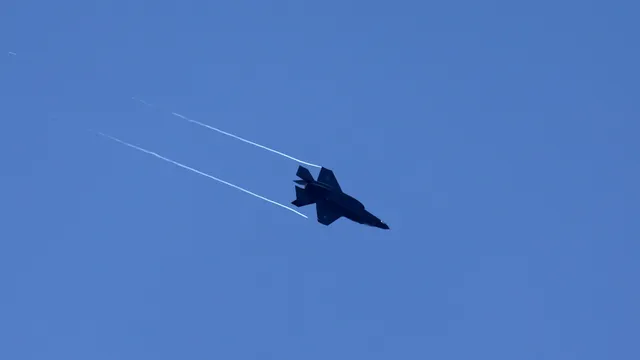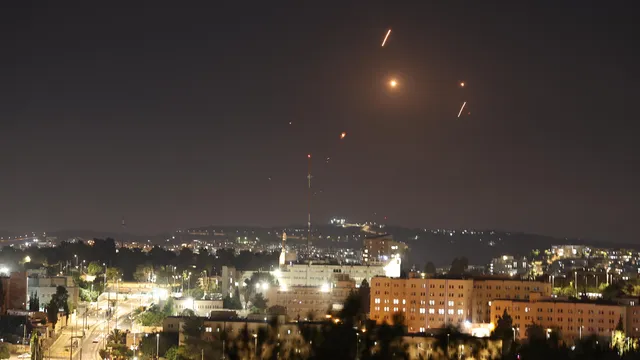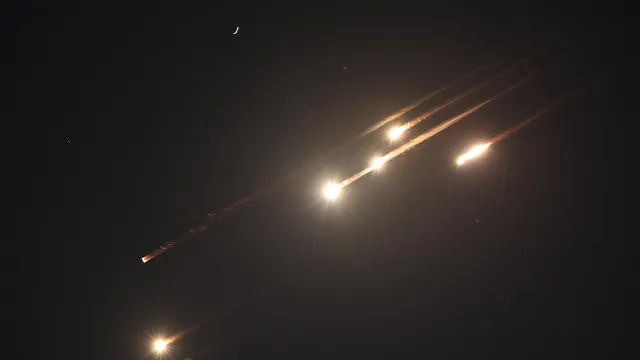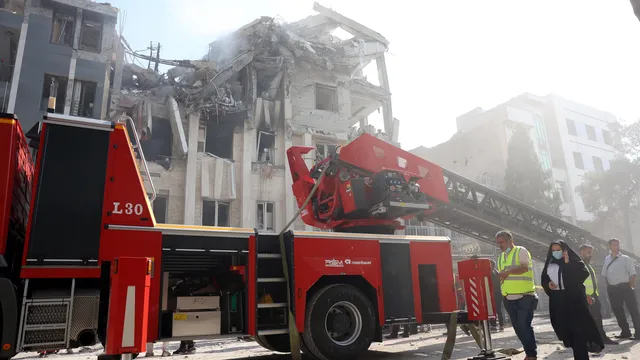Iran fired a new wave of missiles at Israel, injuring several people in residential buildings, while Israel said it was striking Tehran, AFP reported.
The new attacks came after Israeli Prime Minister Benjamin Netanyahu vowed to strike “all targets of the Ayatollah regime,” and Iranian President Masoud Peshkiyan warned that further strikes would lead to a “harsher and more powerful response.”
With growing calls for de-escalation, the new round of talks between the US and Iran on the nuclear program was canceled, with Iran announcing that it could not negotiate while under attack from Israel.
Israel's operation targeted Iran's air defenses and struck key nuclear and military sites, killing dozens of people, including senior military commanders and nuclear scientists, according to Tehran.
Israel said it was simultaneously working to intercept a new series of missiles fired from Iran and striking “military targets in Tehran.”
The Iranian news agency Tasnim reported that an Israeli strike had targeted the headquarters of the Ministry of Defense in Tehran and damaged one of its buildings. The ministry did not comment.
Meanwhile, Iran promised a “new wave” of attacks against Israel.
Emergency services in Israel reported that an Iranian missile struck a house in the Haifa area, injuring 14 people, one of whom is in critical condition.
Meanwhile, Israeli strikes hit two fuel depots in Tehran, the Iranian oil ministry said.
According to the ministry, the oil depots in Shahran, northwest of Tehran, and another tank south of the city were hit.
A journalist saw the depot in Shahran in flames.
“Every base, every target”
Iran's ambassador to the UN said 78 people were killed and 320 wounded in the first wave of Israeli strikes.
Israel said three people were killed and 76 wounded in drone and missile strikes from Iran overnight.
Netanyahu vowed to continue Israel's campaign.
“We will strike every site, every target of the Ayatollah regime,” he said in a video address, threatening stronger action “in the coming days.”
He added that Israel's campaign had dealt a “real blow” to Iran's nuclear program and that it had the “clear support” of US President Donald Trump.
Trump noted that he and Russian President Vladimir Putin had agreed by phone that the conflict between Iran and Israel “must end.”
Meanwhile, Pezeshkian said that “the continuation of Zionist aggression will be met with a harsher and more powerful response from the Iranian armed forces.”
According to a statement from his office, Pezeshkian also condemned Washington's “dishonesty” in supporting Israel while conducting nuclear negotiations with Iran, which, according to mediator Oman, will not take place.
Western governments have repeatedly accused Iran of seeking to acquire nuclear weapons, which it categorically denies.
Iran's chief negotiator on the nuclear program, Foreign Minister Abbas Aragchi, commented that the Israeli attacks undermine the negotiations and push the region toward a “dangerous cycle of violence.”
Global concern
After decades of hostility and proxy conflicts, this is the first time that sworn enemies have exchanged fire with such intensity, raising fears of a prolonged conflict that could engulf the Middle East.
Underlining the unrest, Turkish President Recep Tayyip Erdoğan warned of a “devastating war” with regional consequences in a phone call with Saudi Crown Prince Mohammed bin Salman, Ankara said.
Israeli strikes also hit Iran's uranium enrichment plant in Natanz, killing the most senior military officer, Mohammad Bagheri, and the head of the powerful Islamic Revolutionary Guard Corps, Hossein Salami.
The Israeli army claims that the strikes killed more than 20 Iranian commanders.
Iranian media reported that five guards were killed in Israeli strikes, while authorities in a northwestern province said 30 soldiers were killed.
The Iranian Red Crescent said an ambulance was hit in the city of Urmia, killing two people.
Iran called on its citizens to unite in defense of the country, while Netanyahu urged them to rise up against the government.
The Iranian news agency Mehr reported that Tehran had warned Britain, France, and the US that it could retaliate if they sided with Israel.
“Everything was shaking”
Photos from the town of Ramat Gan near Tel Aviv show destroyed buildings, wrecked cars, and streets covered with debris after the first wave of Iranian attacks.
Iran's Revolutionary Guards announced that they had struck dozens of targets in Israel. An Iranian missile wounded seven Israeli soldiers, the military said.
Firefighters worked for hours to rescue people trapped in a skyscraper in Tel Aviv.
Chen Gabizon, a resident of the city, said he ran to an underground shelter after hearing an alarm.
“We heard a very loud explosion, everything was shaking, there was smoke, dust, everything was scattered,” he said.
In Tehran, fire and thick smoke rose above Mehrabad Airport, a journalist reported.
The Israeli army confirmed that it had struck an underground military facility in the western Iranian city of Khorramabad, where surface-to-surface missiles and cruise missiles were stored.
Iranian media also reported a “powerful explosion” after an Israeli drone strike on an oil refinery in the southern city of Kangan.
The attacks prompted several countries to temporarily suspend air traffic, with Jordan closing its airspace again after briefly reopening it. |BGNES

 Breaking news
Breaking news
 Europe
Europe
 Bulgaria
Bulgaria
